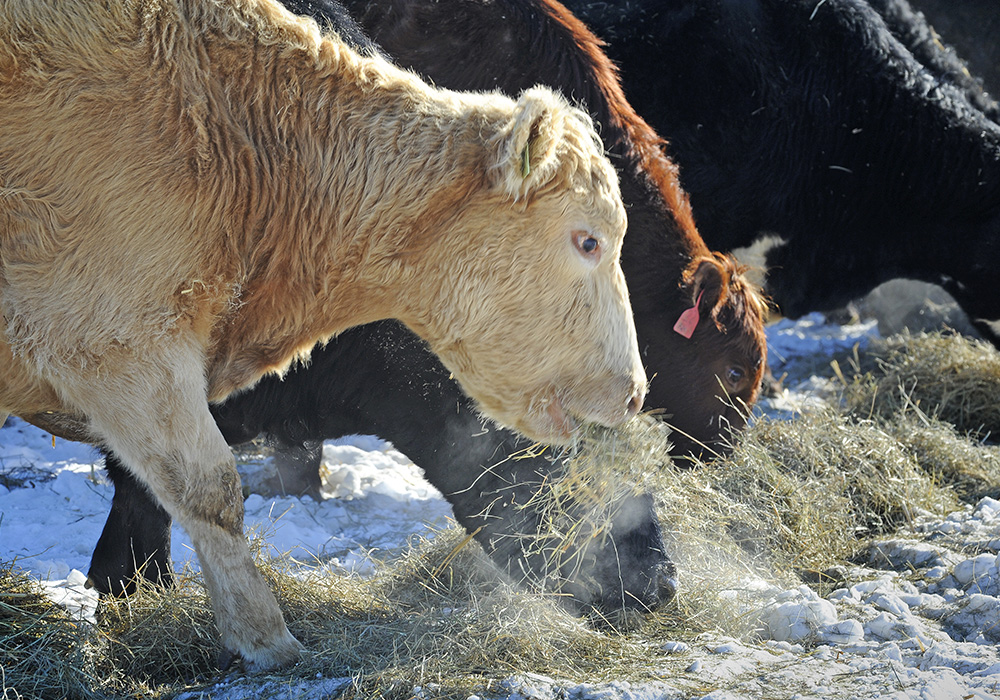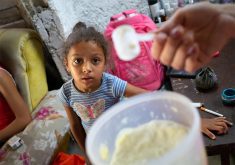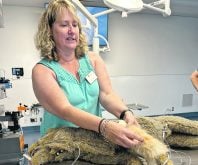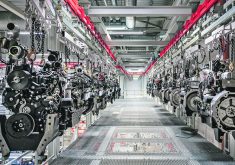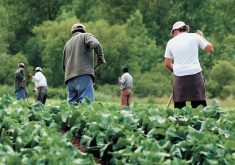Animal welfare groups are using the COVID-19 crisis to attack the meat packing industry and farmers who raise cattle, pigs and poultry.
In the last week or so, several groups have blamed “factory farming” for pandemics like COVID-19 and said more will happen unless intensive agriculture comes to an end.
“The exploitation of 50 billion animals globally on factory farms not only causes suffering to animals, these systems are increasingly being implicated in heightened public health threats and disease risk to humans,” said World Animal Protection, which has offices in Toronto.
Read Also

Farming Smarter receives financial boost from Alberta government for potato research
Farming Smarter near Lethbridge got a boost to its research equipment, thanks to the Alberta government’s increase in funding for research associations.
“Sixty percent of emerging infectious diseases are zoonotic, meaning they originate from animals. And while COVID-19 can be traced to poor wild animal welfare, diseases such as swine flu and bird flu emerged from farmed animals. If we are to avoid further pandemics and the crisis we are all living through today, we must also look at the role intensive farming systems play.”
The link between large livestock operators and human health is questionable because hog and poultry barns follow strict biosecurity protocols to minimize disease transmission.
Many vets are more concerned about small scale farms, which keep livestock outside, because pandemics like African swine fever can be transmitted to pigs by human activity, such as transporting infected meat.
“The whole European story (for ASF) right now is hugely people-driven and part of that scenario is contaminated pork products,” said Egan Brockhoff, a vet with Prairie Swine Health Services in Alberta.
The World Animal Protection criticism comes at an unprecedented time for livestock producers. Pork and beef processing plants have closed their doors in Alberta, South Dakota, Minnesota and other states because workers are infected with the coronavirus.
That has cut the number of animals going to slaughter and reduced prices for producers.
The Canadian Cattlemen’s Association has proposed measures to cope with the closure of the Cargill processing plant in High River, Alta., announced April 20.
The measures include funding for a set-aside program that would cover costs to put cattle on maintenance rations rather than finishing rations, limit feedlot placements and establish a committee to match market-ready cattle
with available slaughter capacity, the Western Producer’s Barb Glen reported.
As well, Beef Farmers of Ontario has asked its members to delay the sale of cull cows because the beef processing sector doesn’t have the capacity right now.
World Animal Protection questions that recommendation, saying it will cause unnecessary harm.
“These animals are often already in poor health and this has the potential to elongate their suffering,” World Animal Protection said.
“It can already take several days for these animals to be sold at auction markets and transported to slaughter in normal circumstances.
World Animal Protection isn’t the only animal rights group using COVID-19 to bash farming.
Earlier in April ,The Hill, a publication in Washington, D.C., published an opinion piece from Carter Dillard of the Animal Legal Defense Fund
Dillard was less tactful than World Animal Protection, encouraging investors to pull their money from agri-business.
“The divestment activism that has helped shut down and transition off fossil fuels needs to set its sights on the factory farming industry,” he wrote.
“It’s time to shut down this industry before it breeds another virus that kills hundreds of thousands of Americans…. Second, as we phase out of animal agribusiness — and the festering factory farms and wet markets rife with the disease — we need to establish new legal protections for animal populations and habitat.”
World Animal Protection did credit Chicken Farmers of Canada, which is cutting the number of broiler chickens raised by 12 percent this spring to accommodate the reduced capacity of processing plants.
However, the animal rights group also said that COVID-19 represents a chance to move away from meat and dairy production.
“In these difficult times, it may also be a chance for people to reflect on our food system and consider rethinking how we can make things better for farm animals,” said Lynn Kavanagh, campaign manager with World Animal Protection.
“Canada’s Food Guide already recommends eating less meat and dairy in favour of more plant-based proteins for health and environmental reasons.”
Contact robert.arnason@producer.com




